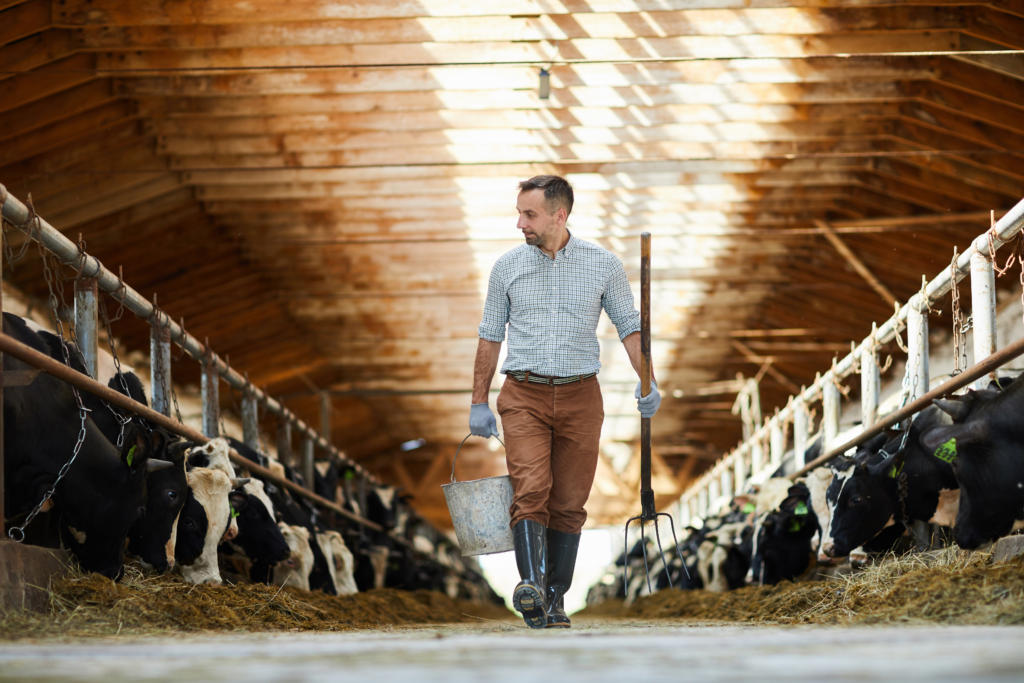
Over the last 12 months there has been a noticeable increase in activity levels by the main UK regulators; conducting inspections, investigations and prosecutions where significant breaches of legislation have taken place resulting in actual harm or a risk of harm.
In this article, we look at the consequences of non-compliance and some examples of why things go wrong and explain how we have been able to help our rural clients.
What is the cost of getting it wrong?
In the event of a successful prosecution brought by the Health and Safety Executive, Environment Agency, Food Standards Agency and Local Authority Environmental Health Departments, the Courts have unlimited sentencing powers in terms of the fines that can be imposed. There are other consequences that are less straightforward to quantify in financial terms, such as reputational damage, the impact of director disqualification and having a criminal conviction.
Fines are worked out by taking account of an organisation’s culpability, the level of harm caused or harm risked, and their financial status. As an example, an organisation with an annual turnover of less than £2 million whose culpability in the context of a work-related accident was found to be “high” involving a high likelihood of a significant harm, would be exposed to a potential fine of over £100,000 excluding costs. Individuals convicted of a health and safety offence can receive a custodial sentence of up to 2 years.
Similar sanctions can be, and often are, imposed for environmental offences. Recent examples include;
- a 12 month custodial sentence and £600,000 prosecution costs order imposed on a Herefordshire farmer for undertaking non-permitted dredging and re-profiling of a 1.5km stretch of a river in a site of special scientific interest (SSSI), and
- custodial sentences of up to 30 months handed to individuals involved in a large -scale illegal waste operation at a Staffordshire farm.
Why things have gone wrong and how we have been able to help
Health and Safety
What happened?
A member of the public claimed to have been injured after coming into contact with cows with calves at foot at the client’s farm. Warning signs had been put up but these were regularly vandalised or removed.
An investigation was undertaken by HSE and an Improvement Notice was served. Acting on our advice, the Improvement Notice was appealed.
How did we help?
We successfully argued that there were no reasonably practicable alternatives to placing cows with calves in the field in question or offering other routes for rights of way users routes to follow. To minimise the risk of a future incident, the client agreed to monitor and replace warning signs more frequently and also committed to only letting cows with calves graze in the field that had established good temperaments.
We were able to persuade HSE to withdraw the Improvement Notice for technical reasons and, as a result of the prompt and effective remedial action taken by the client, also to agree not to serve a further Improvement Notice or take formal enforcement action in the form of a prosecution.
Environmental
What happened?
The following is not an uncommon story.
A farming client was approached by an individual who claimed to be the owner of a permitted waste transfer station and recycling operation nearby. The client was offered the opportunity of being provided with significant volumes of what was described as clean hardcore/construction waste to make good his farm tracks and also to receive a modest payment for each load.
No enquiries were undertaken by the client to make sure that the individual was a legitimate waste operator, there was an environmental permit in place for their site and also an exemption registered for the intended activities. The client also failed to check, or ask for documentation, to confirm the material’s waste type and, importantly that it was clean and therefore free from hazardous substances.
How did we help?
Shortly afterwards, the Environment Agency became aware of what had happened and established that the imported waste was heavily contaminated with asbestos containing materials. We then became involved.
The Agency initially suspected the client of deliberately accepting contaminated hardcore in return for payment. However, through written caution representations, the background and circumstances were explained to the Agency, who quickly accepted that the client should no longer be treated as a suspect.
The client subsequently provided a witness statement to the Environment Agency for use as evidence against the prosecution brought against the illegal waste operator.
The client was fortunate as he was able to recover the costs of removing the waste to a properly permitted site as part of the victim compensation order made by the sentencing judge. We raised the making of an application for a victim compensation order with the Agency at an early stage and collated the necessary evidence required for the Agency’s application to succeed.
Food Safety/Food Hygiene
What happened?
We were approached by the owner of a farm and farm shop who was being prosecuted by the Foods Standards Agency. The client was alleged to have committed multiple food safety offences associated with the sale of a dairy product.
The prosecution’s case was that the client’s offending was deliberate, occurred over a substantial period of time and had caused a serious health risk.
How did we help?
We went on the record for the client and, following analysis of the evidence, we challenged the basis of the Food Standards Agency’s case.
As a result of undertaking focused lines of enquiry and gathering further evidence, we were able to persuade the Food Standards Agency to accept that the quality of only one small batch of the dairy product had been compromised and that the reason was due to a sudden, isolated and unknown, malfunction with the client’s processing equipment.
Had the case originally advanced by the prosecution not been challenged, the sentencing guideline that would have applied (to the client) included the ability for the court to impose a custodial sentence of up to two years. Instead, a very modest fine was imposed.
Contacting our Regulatory team is the best way to make sure that you receive the advice you need if you have a compliance-related concern or are being investigated by a UK regulator.
